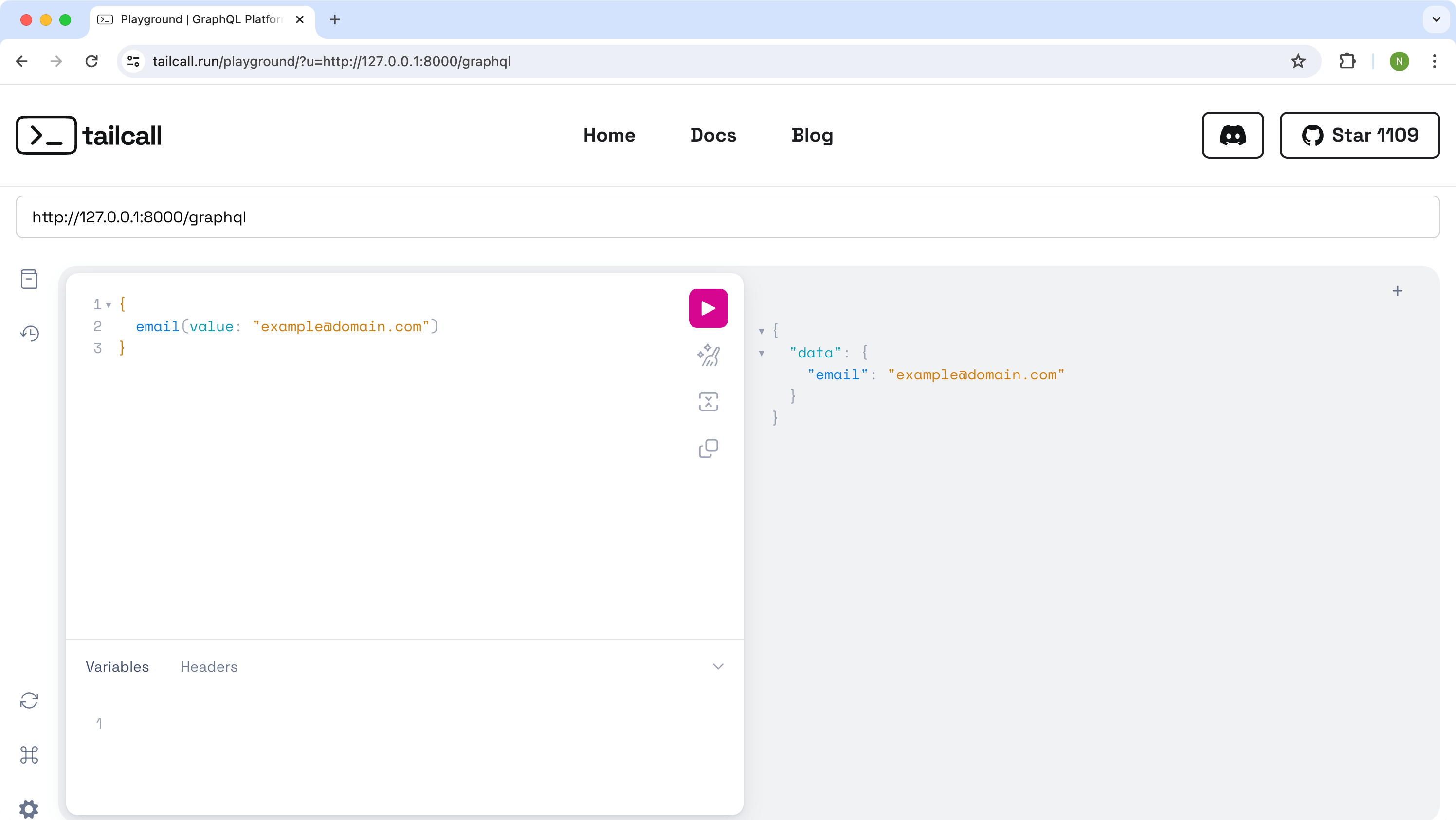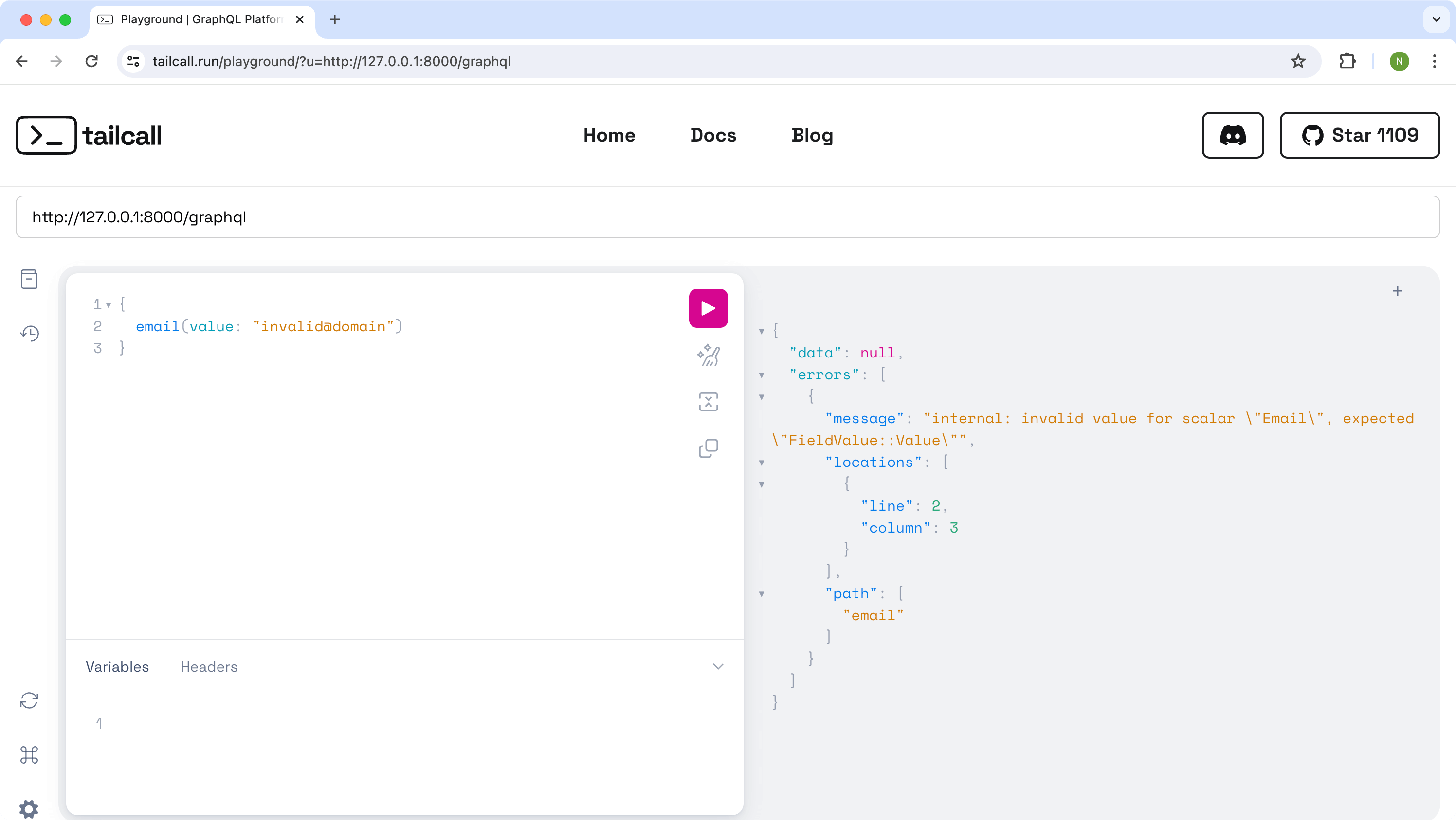Simplifying GraphQL Scalars
The GraphQL specification includes default scalar types Int, Float, String, Boolean, and ID. Although these scalars cover the majority of use cases, some applications need to support other atomic data types such as Date or an Email.
Tailcall provides these predefined scalars, with built-in validations, eliminating the need for you to do so.
Default Scalars
Here is a list of default scalars that are built into the GraphQL Spec:
| Scalar | Description | Specification |
|---|---|---|
Int | A type representing non-fractional signed whole numbers. Values can range up to (2^31 - 1). | GraphQL Specification for Int |
Float | A type for signed double-precision floating-point numbers. | GraphQL Specification for Float |
String | A sequence of UTF-8 characters, representing textual data. | GraphQL Specification for String |
Boolean | A boolean type that represents true or false. | GraphQL Specification for Boolean |
ID | A unique identifier, typically used to refetch an object or as a cache key. | GraphQL Specification for ID |
GraphQL Scalars
These are the current set of custom scalars supported by Tailcall:
| Scalar | Description | Specification |
|---|---|---|
Email | A string that conforms to the email format as defined in the HTML specification, utilizing the Unicode character set. | HTML Specification for Valid Email Addresses |
PhoneNumber | A string format adhering to the E.164 international standard, which outlines the numbering plan for the worldwide public switched telephone network (PSTN) and certain data networks. | E.164 International Numbering Plan |
Date | A string that represents dates and times in the Internet protocols, following the ISO 8601 standard via the Gregorian calendar. | RFC 3339 Date and Time Internet Formats |
Url | A standardized format for Uniform Resource Identifiers (URI) that includes both the generic URI syntax and guidelines for resolving URI references, which may be in relative form. | RFC 3986 Uniform Resource Identifier |
JSON | A lightweight data interchange format based on the ECMAScript Programming Language Standard, designed for human-readable data representation. | RFC 7159 The JavaScript Object Notation (JSON) Data Interchange Format |
Empty | A type that represents no value or is used as a placeholder in contexts where no other data is expected or returned. It's equivalent to unit or void in other programming languages. |
If none of the scalars make sense for your use case, consider opening an issue on the Tailcall github repository.
Custom Scalars
Apart from the pre-defined list of scalars, you can define your own custom scalars in your GraphQL schema like in the example below.
scalar AnyScalar
schema @server(port: 8000, hostname: "localhost") {
query: Query
}
type Query {
any(value: AnyScalar!): AnyScalar!
@expr(body: "{{.args.value}}")
}
Be aware that custom scalars don't have any validation and can be mapped to any data structure when using it.
Example Usage
Let's try using these custom scalars in our GraphQL schema.
schema @server(port: 8000, hostname: "localhost") {
query: Query
}
type Query {
email(value: Email!): Email!
@expr(body: "{{.args.value}}")
}
Valid Query Example
Here is an example of a valid query that passes the custom scalar validations:

Invalid Query Example
And here is an example of an invalid query that fails the custom scalar validations as expected:
